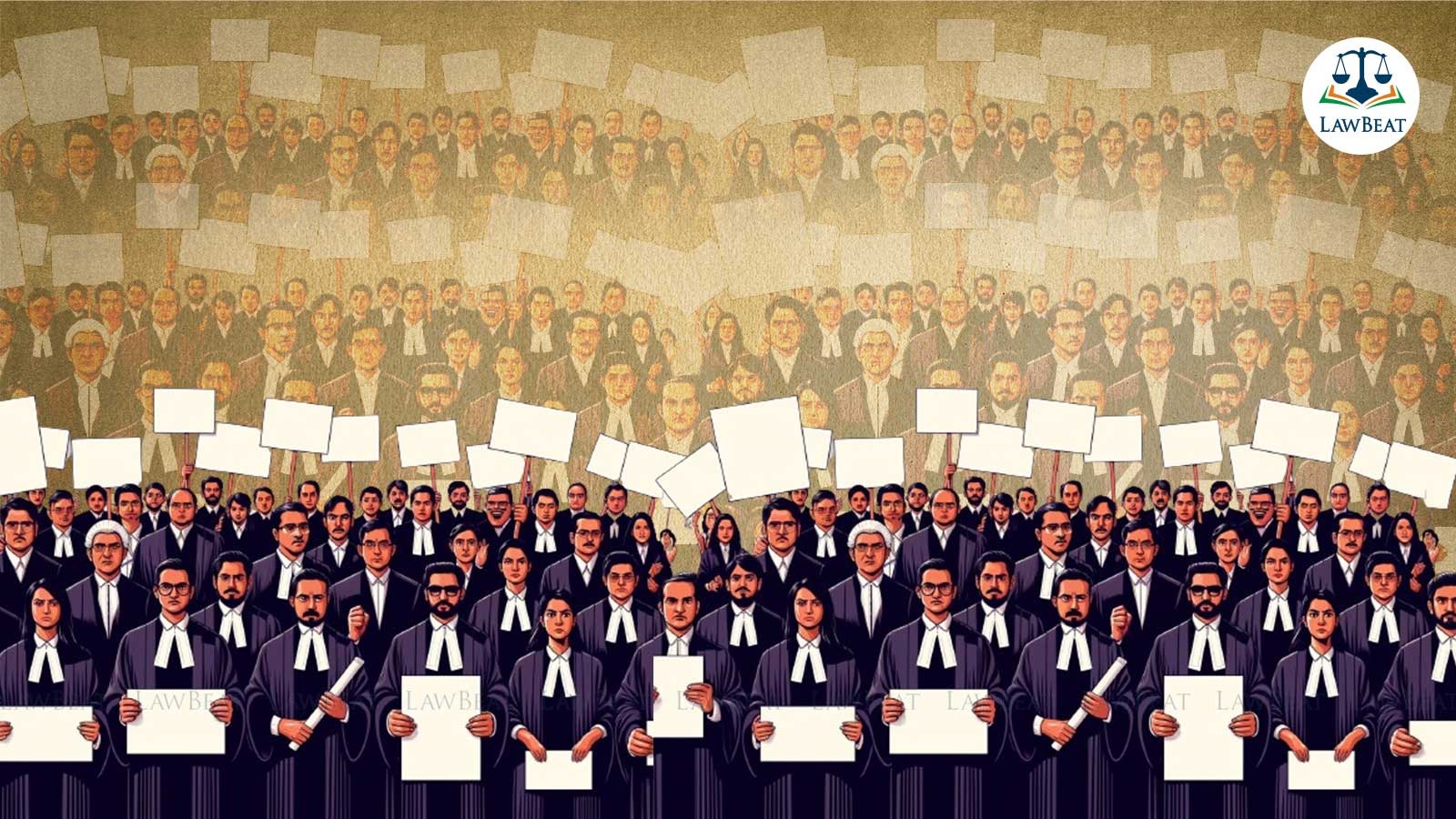'Most lawyers oppose frequent strikes': Allahabad HC Warns Bar Associations of Consequences for Strike Calls

Court stated that Bar Association office bearers must ensure smooth court functioning, warning that strike calls defy Supreme Court orders and will result in personal liability
The Allahabad High Court recently expressed serious concerns regarding the frequent strikes called by district bar associations, labeling them as disruptive to the justice delivery system and harmful to the reputation of the legal profession.
In its recent order on September 25, 2024, the division bench of Justices Ashwani Kumar Mishra and Dr. Gautam Chowdhary, heard a suo motu contempt application against the District Bar Association of Prayagraj and emphasized that such strikes, especially those initiated without just cause, undermine the profession's integrity and obstruct access to justice.
Court noted that many lawyers disapprove of these strikes, but a small faction routinely calls for them, leading to significant disruptions in court proceedings.
The judges highlighted that the legal profession is known as a "noble profession" and that advocates have specific duties towards their clients, the courts, and their fellow professionals. However, some advocates have been engaging in activities that tarnish the profession's reputation, at the expense of their clients' interests and the judicial process.
Advocate K. R. Chitra, who was assisting the court in the matter, raised concerns over the negative impact of these frequent strikes, mentioning that they cause immense harassment to both litigants and fellow advocates. She argued that such conduct amounts to professional misconduct and criminal intimidation, and urged the court to take necessary action to curb these disruptions. Her sentiments were echoed by senior advocate Satyaketu Singh, who, in his intervention, pointed out that the Ghaziabad Bar Association has called strikes for nearly 80-100 days in the past year, leaving litigants in confusion and despair as courtrooms shut down abruptly.
Adv Chitra further emphasized that the Bar Councils and associations were established to improve the administration of justice, not to advance personal interests through frequent disruptions.
The high court strongly condemned this culture of frequent strikes, pointing out that they not only damage the image of the legal community but also call into question the credibility of the justice system in the eyes of the public.
The judges reiterated the Supreme Court's ruling on the issue, particularly referencing the 2003 landmark judgment in Ex-Captain Harish Uppal v. Union of India, which declared strikes by lawyers to be illegal.
To restore order and ensure the smooth functioning of the courts, the high court urged lawyers to introspect and reconsider their actions.
The judges further noted that the State Bar Council of Uttar Pradesh had resolved that condolence meetings should be held at 3:30 p.m., a practice followed by the high court to ensure that court work is not obstructed for the entire day. However, many district courts continue to organize these meetings at 10 a.m., causing a full day’s disruption of judicial proceedings.
The high court issued clear instructions to district judges across Uttar Pradesh to refrain from circulating any strike resolutions passed by bar associations, warning that office bearers of associations calling for such strikes would be held personally liable.
Court posted the matter on October 22, 2024, and sought further reports on the implementation of the court's earlier directions by then.
Case Title: In Re Opposite Party :- District Bar Association Of Prayagraj
